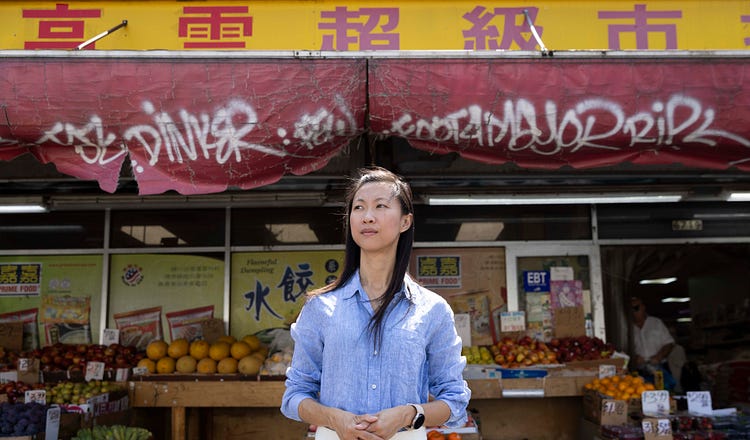These Asian American Candidates Want to Make America Great Again

Ying Tan is a Chinese American running for New York City Council in Southern Brooklyn on the Republican ticket. (Andrew Kelly for The Free Press)
Politicians from a voting bloc that historically leans blue say they want to ‘expand the boundaries of the MAGA agenda.’
240
The unofficial headquarters of the Asian American right-wing revolt is a fluorescent-lit basement in New York City’s Chinatown.
The basement is littered with flyers and custard pastries and a poster emblazoned with Chinese characters that spell out the words longevity and perseverance. It is the campaign headquarters of Helen Qiu, 53, the single mother-…
Continue Reading The Free Press
To support our journalism, and unlock all of our investigative stories and provocative commentary about the world as it actually is, subscribe below.
$8.33/month
Billed as $100 yearly
$10/month
Billed as $10 monthly
Already have an account?
Sign In

